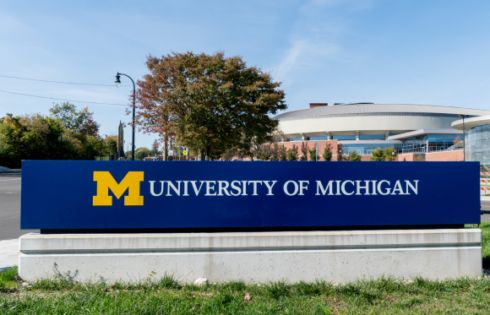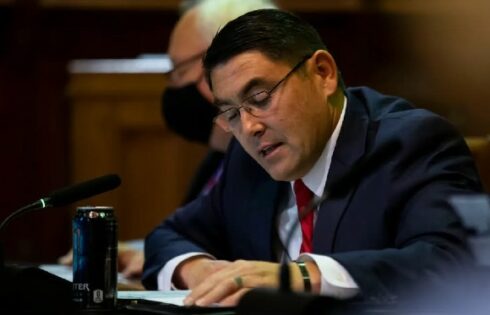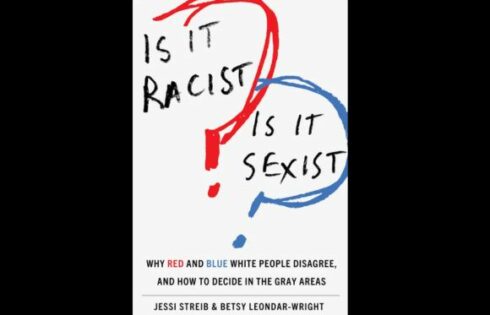Contradictory policy polices campus speech while stating students have right to be free from speech codes
A campus watchdog group recently sounded the alarm on a sweeping policy at the University of Wisconsin Oshkosh that states its students have a right not to be subjected to any official speech codes—yet bans them from making “insulting” or “demeaning” comments.
According to the UW Oshkosh policy, “All members of the University have a responsibility to promote and a right to expect … an environment that is free of harassment and free of insulting and demeaning comments and epithets based on race, ethnicity, gender, religion, sexual orientation, age, disability, military status, socioeconomic status, family status, or political views; and consistent enforcement of federal, state, and university protections against discriminatory treatment yet is free from any official speech codes.”
The Foundation for Individual Rights in Education, a nonpartisan campus rights group, has assigned the policy its worst possible “red light” rating. The group also chose the policy as its May 2021 Speech Code of the Month.
FIRE spokesperson Katie Kortepeter told The College Fix in an email that “Each month, we highlight one college or university policy that chills student expression as its Speech Code of the Month. This month’s dubious honor goes to UW Oshkosh for a contradictory policy that polices student speech, while claiming to not be a speech code.”
In naming UW Oshkosh as the group’s Speech Code of the Month recipient for May, Laura Beltz, senior program officer at FIRE, noted “It’s not rare for colleges to contradict themselves on free speech, making sweeping declarations of free speech rights to their students while simultaneously maintaining policies that infringe on those rights. It is rare for a school to make this contradiction in a single sentence, but the University of Wisconsin Oshkosh does just that.”
While the policy is housed under UW Oshkosh’s faculty handbook, Beltz told The College Fix in a phone interview that the policy clearly states it applies to all members of the university, including students.
Beltz noted in a video on the policy that “Under UW Oshkosh’s policy, students could be punished over a subjectively insulting tweet about something like someone’s political views.”
“Sure, insulting and demeaning speech can be a part of speech or conduct that isn’t constitutionally protected, like harassment or a true threat. But most of the time, insulting speech is fully protected under the First Amendment,” she said. “UW Oshkosh can certainly encourage students to embrace certain values on campus, but it can’t make that a mandatory expectation without infringing on students’ rights.”
In a statement to The College Fix, Beltz stressed that the policy, in its current form, is overly broad and must be revised so that students’ First Amendment rights are upheld.
“By limiting student discourse to speech that no one in the room deems ‘insulting or demeaning,’ UW Oshkosh is effectively giving the most sensitive people on campus—or anyone who might claim they feel insulted or demeaned—veto power over campus conversations,” she said.
“These limitations to speech within an official policy sound an awful lot like an official speech code. Not only is the UW Oshkosh policy a speech code, it’s also unconstitutional. The university needs to clear this up,” she said.
Although Beltz told The Fix that it “remains to be seen” whether FIRE will need to take legal action, she said the policy “could definitely be subject to challenge” under the First Amendment.
She also stressed the policy’s potential to chill protected speech even if the university chooses not to actively use it to restrict speech.
“If students read [the policy], they can assume that any sort of subjectively insulting or demeaning comment about a particular characteristic could be punished,” Beltz said. “Its presence on the books means the university can dig it up and apply it whenever it’s presented with some sort of free speech controversy and it wants to apply it.”
The policy, itself, goes on to state that “Upon observing discriminatory behaviors or hearing offensive comments, every reasonable effort is made to protect the victim(s) and witness(es) from further harassment.”
“Does that mean that the university will respond to any instance of purported ‘offensive comments,’ whether they are a part of a pattern of conduct that constitutes harassment or not?” wrote Beltz in FIRE’s article on the policy.
The College Fix had contacted the university with similar questions, asking how they would determine if a comment is “insulting” or “demeaning,” what actions would be taken if they suspect that such comments have been made in violation of the policy, and whether they published the policy just as a recommendation for students or as a policy to enforce.
UW Oshkosh spokesperson Peggy Breister told The Fix: “UW Oshkosh was not contacted by the organization you reference regarding the publication of their commentary. We have no comment on a story about their commentary.”
Beltz said that FIRE planned to send a letter to the university with “more details about why they flagged the policy” and how it could be revised to “better meet First Amendment standards.”
She later confirmed in an email to The College Fix that a letter was sent on May 7, although FIRE would like to “keep it private so that the university can have a chance to respond.”
FIRE sees the letter “as an invitation to work with us collaboratively to improve the policy, so we wouldn’t want to send the message that all further correspondence will be made public,” she wrote.
Beltz told The Fix in the phone interview that the policy has been in place at the university at least since 2015, according to the FIRE’s site archives.
In light of that fact, Beltz said that FIRE is hoping the university “just hasn’t reviewed it in a while and hasn’t considered that a statement like this—which they may have written with the intention of it being aspirational but has that sort of mandatory expectation language—that they can actually change that, so it actually does include more permissive aspirational language.”
She also said that FIRE had recently created a “Model Speech Policies” page to help universities have examples of policies from other universities that do earn their highest “green light” rating while regulating the same sort of areas.
“[W]e’re certainly not suggesting that universities can’t regulate things like, say, harassment, or even put time, place and manner restrictions on things like demonstrations, or put out a set of values that it wants students to aspire to in the case of policy like this,” she said.
“But, all those things can be regulated without infringing on students’ free speech rights, so we’re hoping universities will take a look at that Model Speech Policies page and follow in those schools’ lead.”
MORE: After adopting free speech policy, university still receives ‘Red Light’ from campus rights group
IMAGE: Motortion Films / Shutterstock
Like The College Fix on Facebook / Follow us on Twitter






Please join the conversation about our stories on Facebook, Twitter, Instagram, Reddit, MeWe, Rumble, Gab, Minds and Gettr.